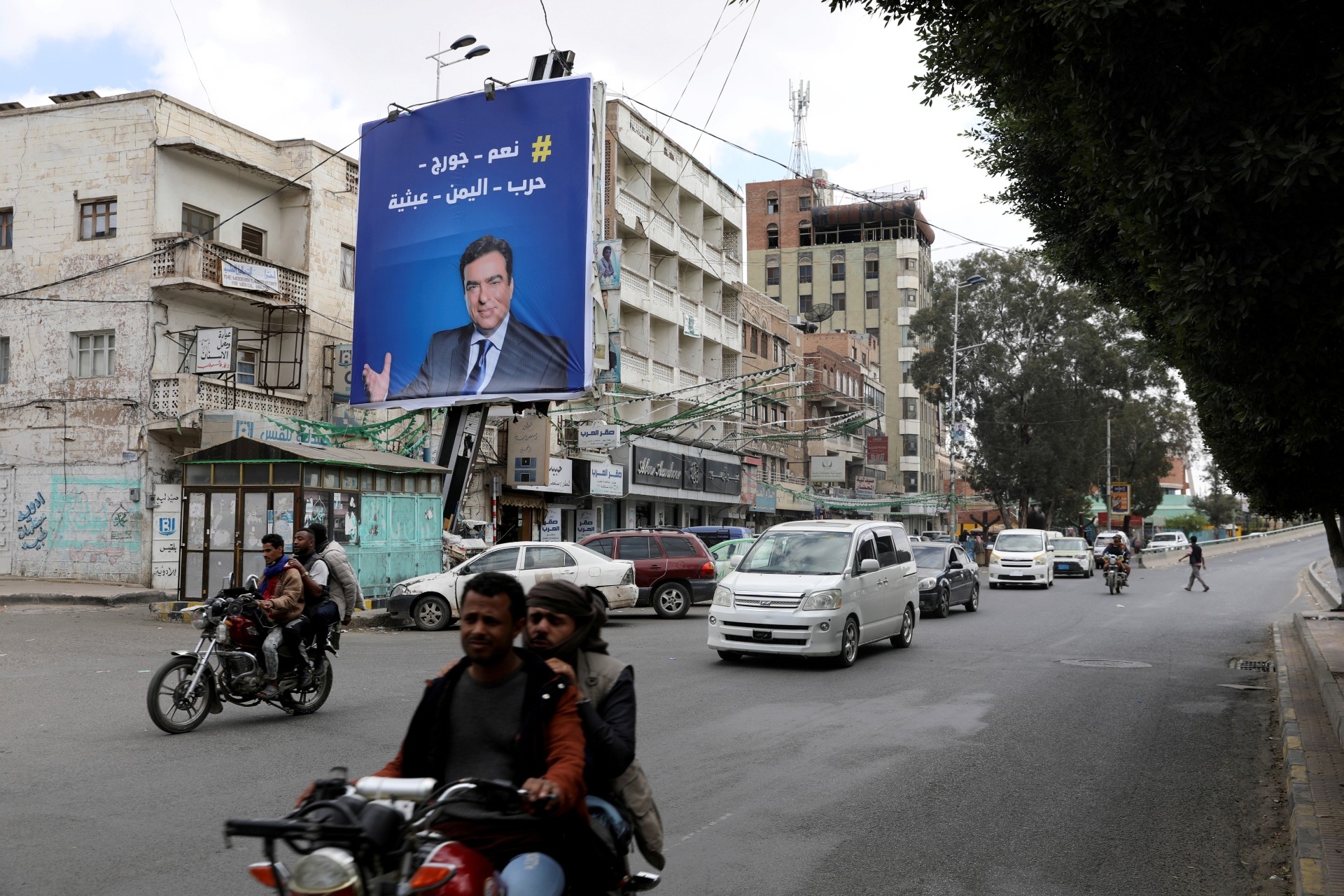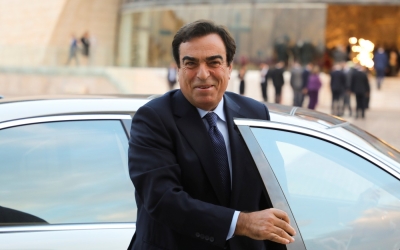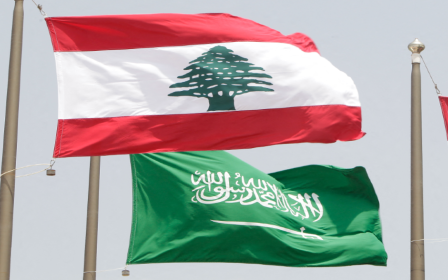Welcome to Kordahi Street: Lebanese minister lauded by Yemenis weary of war

In Saudi Arabia, Kuwait, the United Arab Emirates and Bahrain, George Kordahi’s name is cursed. The Lebanese information minister and former Who Wants to be a Millionaire host inadvertently sparked a diplomatic crisis last week when old comments criticising the Saudi-led coalition’s war in Yemen resurfaced.
In return, the Gulf quartet have broken ties and even some economic links, with Riyadh banning all imports from Lebanon, which is struggling under a terrifying economic crisis.
Not all of the Arabian peninsula is raging, however. In fact, many Yemenis welcomed Kordahi’s comments, believing it draws attention to the six-year-old conflict’s futility. Many of those Yemenis are not even supporters of the Houthi movement the coalition is battling.
In Sanaa, the Houthi-held capital, images of a sharp-suited Kordahi have been stuck up on billboards across the city. Riyadh Street has now been renamed Kordahi Street.
“Kordahi spoke in the tongue of Yemenis and was brave enough to say the truth that no other Arab official dared to do,” Qadri Abdullah, a Sanaa resident, told Middle East Eye.
“He knows that this statement may affect the relationship of his country with the aggression [Gulf countries] but he preferred to support the victims of this war in Yemen. A big thank you to him.”
Kordahi’s criticism, Abdullah said, meant a lot for Yemenis who every day are dying under Saudi-led air strikes and as a result of the kingdom’s blockade on their country. The United Nations estimates that the war has caused 233,000 deaths.
“I can see there is a campaign against Kordahi by the mercenaries of Saudi Arabia but also of his statement appeared from different areas, as Yemenis are fed up of the war.”
Naming a street after the embattled minister is the least Yemenis can do to express their gratitiude, he said.
“Personally, I don’t want a street in my country named after Riyadh, because Saudi Arabia hasn’t done anything good for Yemen deserving of thanks. But Kordhai has.”
'We miss the good days'
Manaf al-Sawdi lives in the southern city of Taiz, a place chewed up by all sides of the conflict. He doesn’t support anyone in the war, and has felt the fighting’s consequences every day for six years. He is one of the four million Yemenis displaced by war.
“Kordahi is right and those who don’t believe him can come to see the war’s impact in Yemen and how war has forced us to leave our homes,” he told MEE.
“I’m happy with anyone who is against the war, as we need to see the end of the war and resume our regular lives inside our homes. We miss the good days.”
'Kordahi is right and those who don’t believe him can come to see the war’s impact in Yemen and how war has forced us to leave our homes'
- Manaf al-Sawdi, Taiz resident
Like many others, Sawdi felt the conflict would be wrapped up quickly in its early years. But as the months dragged on, the Saudi bombing campaign failed to dislodge the Houthis and a feeling of futility crept in.
The coalition originally intervened to prop up the internationally recognised government, which now struggles to control many of the areas under its control and operates primarily from Riyadh.
“We thought the Saudi-led coalition intervened in 2015 to end the conflict, but they created another disaster, so now we hope the United Nations and other countries will intervene to stop this futile war, as Kordahi described it.”
Despite the growing diplomatic crisis, which couldn’t come at a worse time for impoverished Lebanon, Kordahi has ruled out apologising for his remarks. Last week, he insisted he’d "done no wrong", noting the show had been taped in August, more than a month before he became minister.
"I have never attacked nor insulted Saudi Arabia or the Emirates," Kordahi said, adding that his words "did not implicate at all the government, of which I was not yet a member".
"When I say that the war in Yemen is absurd and must end, these are my convictions, and I say this not to defend Yemen, but also out of love for Saudi Arabia and the Emirates," he said.
Not only personal
Opponents of the Iran-aligned Houthi movement are far from happy with Kordahi, however.
One member of the Islah party, a Muslim Brotherhood affiliate that supports the Yemeni government, told MEE the Lebanese minister must be uninformed about the details of the war, or he would not have made such comments.
“It is strange to hear an information minister of a country talking in this way,” the Islah member said, speaking anonymously as he is not authorised to speak to the media. “Kordahi seems to talk like a normal man who doesn’t have any idea about the war, he doesn’t sound like an information minister.”
And the Islah member refuses to accept Kordahi’s position as a personal opinion, insisting that as a minister he represents all of Lebanon.
“I think that Kordahi has links to Hezbollah and he represents Hezbollah, and not the Lebanese cabinet,” he added. “The Gulf countries dealt with this statement to be an official statement by Lebanon and that’s why they ask their ambassadors to leave Lebanon.”
Middle East Eye delivers independent and unrivalled coverage and analysis of the Middle East, North Africa and beyond. To learn more about republishing this content and the associated fees, please fill out this form. More about MEE can be found here.





